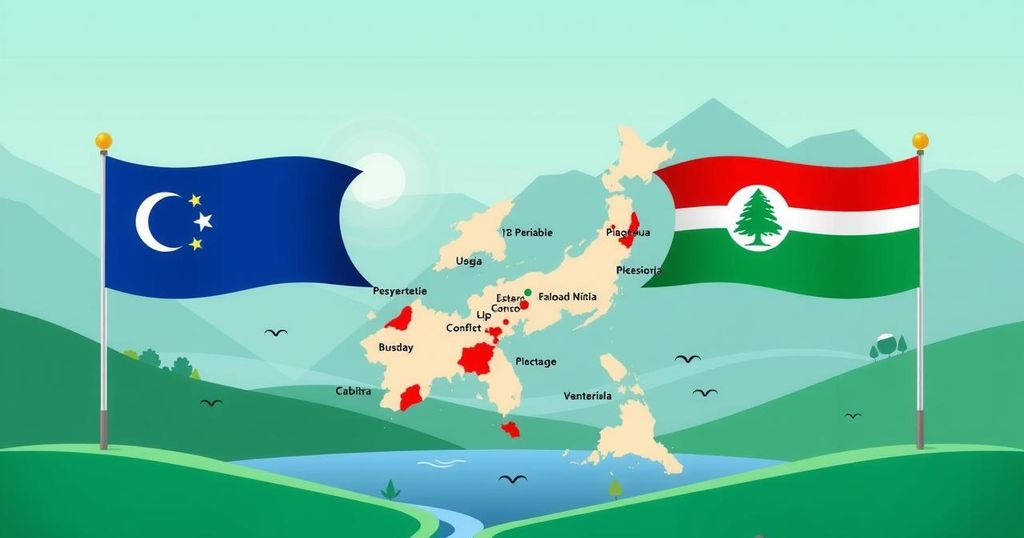Rwandan and DRC Presidents Meet in Qatar to Discuss Eastern Congolese Conflict

The presidents of Rwanda and the DRC convened in Qatar to address the eastern Congolese conflict but without the M23. They reaffirmed a commitment to a ceasefire and discussed further talks, despite the M23’s withdrawal from peace negotiations due to EU sanctions. The situation remains critical, with significant humanitarian impacts amid continual fighting.
On March 18, 2024, the presidents of the Democratic Republic of Congo (DRC) and Rwanda, Félix Tshisekedi and Paul Kagame, engaged in discussions regarding the ongoing conflict in eastern Congo. The meeting, held in Qatar under the mediation of Qatari Emir Tamim bin Hamad Al Thani, centered on the issues presented by the Rwandan-backed March 23 Movement (M23) rebel group. Notably, the M23 was not present at this critical dialogue.
In a joint statement issued after their meeting, both leaders reiterated their commitment to an immediate and unconditional ceasefire. This meeting coincided with a planned direct peace dialogue between the conflicting parties in Angola; however, this dialogue did not occur as the M23 withdrew in response to European Union sanctions imposed on certain of its leaders.
The presidents emphasized the necessity of continuing the talks that commenced in Doha, aiming to establish a foundation for sustainable peace. A peace summit was previously scheduled for December 15, 2024, following a ceasefire agreement signed in Luanda on July 30, 2024, although renewed fighting had since disrupted this accord.
The negotiations faced complications concerning M23 participation; Rwanda advocated for the inclusion of rebels, while the DRC expressed opposition. The discussions on March 18 were the first instance in which the DRC government consented to meet directly with the M23. However, the Angolan Foreign Affairs Ministry later confirmed the reasons for the dialogue’s cancellation due to the rebels’ withdrawal linked to EU sanctions.
The Congo River Alliance (AFC) expressed profound regret over the actions of certain international organizations, accusing them of undermining peace efforts and rendering negotiations impossible. The M23, allegedly supported by Rwanda according to various nations including the United States and Germany, controls key provincial capitals rich in valuable minerals, which complicates the situation further.
Since the conflict intensified in January 2024, over 850,000 individuals have been displaced in South Kivu, as reported by the UN Children’s Fund. The fighting in North Kivu, particularly around Goma, has resulted in significant casualties, with reports indicating more than 8,500 deaths as of late February. The longstanding turmoil in eastern DRC has persisted since 1998, characterized by clashes between military forces and rebel militias, even in the face of a UN peacekeeping presence.
The recent meeting between the DRC and Rwandan presidents in Qatar reinforced their dedication to achieving a ceasefire amidst the ongoing conflict in eastern Congo. While efforts to mediate peace continue, the absence of the M23 and the subsequent withdrawal from peace negotiations highlight significant obstacles. The humanitarian crisis is deepening, evidenced by the immense displacement and loss of life in the region, demanding urgent international attention and solutions.
Original Source: efe.com








